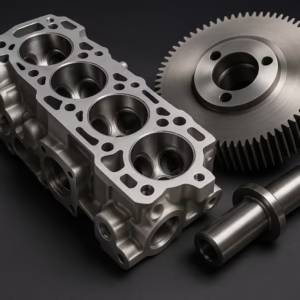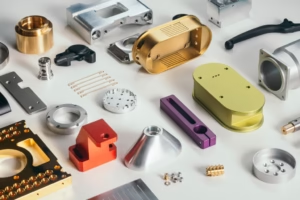Finding a Reliable Custom CNC Supplier
The need for precision-engineered components is growing in the current fast-paced manufacturing industry. Nowadays, a custom CNC (Computer Numerical Control) is an essential process across a variety of industries including aerospace, electronics, automotive medical devices, and more. However, any success you can get from your project is contingent on locating an experienced custom CNC provider. In this article, you will through the essential steps to locate a trustworthy supplier that meets your needs.
Understanding Your Requirements:
Before you start your search for a custom CNC supplier, it’s crucial to have a clear understanding of your project requirements. Consider the following factors:
Materials: Determine the materials you need for your components. CNC machining can work with various materials, including metals (aluminum, steel, titanium) and plastics (ABS, nylon, polycarbonate).
Tolerances: Understand the precision required for your components. Different suppliers have varying capabilities in achieving tight tolerances.
Volume: Consider whether you need a small batch of prototypes or large-scale production runs. Some suppliers specialize in one or the other.
Lead Time: Assess your timeline. Ensure the supplier can meet your deadlines without compromising quality.
Design Complexity: Evaluate the complexity of your designs. Some suppliers may excel in intricate parts while others may be better suited for simpler components.
Researching Potential Suppliers
Once you have a clear understanding of your requirements, the next step is to research potential suppliers. Here are some effective strategies:
Online Directories and Marketplaces: Websites like ThomasNet, Maker’s Row, and Alibaba can help you find CNC suppliers. Look for those with positive reviews and a robust portfolio.
Industry Associations: Many industries have associations that provide resources and directories for reliable suppliers. Check if your industry has such a network.
Trade Shows and Exhibitions: Attending industry-specific trade shows is an excellent way to meet suppliers in person. You can see their products firsthand and discuss your needs directly.
Networking: Reach out to peers in your industry for recommendations. Personal referrals can lead you to suppliers that others have had positive experiences with.
Social Media and Forums: Platforms like LinkedIn and industry-specific forums can be valuable for gathering insights and recommendations about CNC suppliers.
Evaluating Suppliers
Once you have a shortlist of potential suppliers, it’s essential to evaluate them to ensure they meet your standards:
Experience and Expertise: Look for suppliers with extensive experience in CNC machining. Check their history and the industries they have served.
Certifications: Ensure the supplier holds relevant certifications, such as ISO 9001, which indicates a commitment to quality management systems.
Capabilities: Inquire about their equipment and technology. Advanced machinery and software can improve precision and efficiency.
Quality Control Processes: Ask about their quality assurance processes. A reliable supplier should have a robust system for inspecting and testing components before delivery.
Case Studies and References: Request case studies or references from previous clients. This can give you insight into their work quality and customer service.
Communicating Your Needs
Effective communication is vital for a successful partnership with a CNC supplier. When discussing your project, be clear and concise about your requirements:
Provide Detailed Specifications: Share detailed drawings and specifications, including dimensions, tolerances, and surface finishes.
Set Expectations: Communicate your expectations regarding timelines, budgets, and quality.
Discuss Problem-Solving: Gauge how the supplier approaches challenges. A proactive supplier will provide solutions and suggestions to enhance your project.
Requesting Quotes and Prototypes
Once you have narrowed down your list of potential suppliers, request quotes. Consider the following when evaluating quotes:
Pricing: While cost is important, the cheapest option may not always be the best. Consider the overall value, including quality and service.
Turnaround Times: Compare the lead times provided by each supplier. Ensure they align with your project timeline.
Prototype Development: Ask if they offer prototype services. Testing a prototype before full-scale production can help identify issues early on.
Building a Long-Term Relationship
Once you have chosen a supplier, focus on building a long-term relationship. A reliable custom CNC supplier can be a valuable partner in your manufacturing process. Here are some tips for fostering a successful collaboration:
Maintain Open Communication: Keep the lines of communication open. Regular updates and feedback can help resolve issues promptly.
Evaluate Performance: Continuously assess the supplier’s performance against your expectations. Provide constructive feedback and recognize their efforts.
Find new opportunities: If your project is growing think about discussing possibilities with the supplier. They might have insight or capabilities that can be beneficial to your future ventures.
Locating a trustworthy custom CNC supplier takes careful research and analysis. By analyzing your requirements conducting thorough assessments and maintaining clear communications, you can create a partnership that will improve the efficiency of your manufacturing processes. Reliable partners can meet your immediate and long-term needs in an increasingly competitive market. By taking the appropriate steps, you will discover custom CNC machine machining and select services provided by companies that match up well with your vision and objectives.
Prototek can be your reliable and confident supplier, feel free to contact us by Lynnyao@prototekparts.com 或致电+86-0792-86372550
标签
- Custom, CNC Supplier

























































